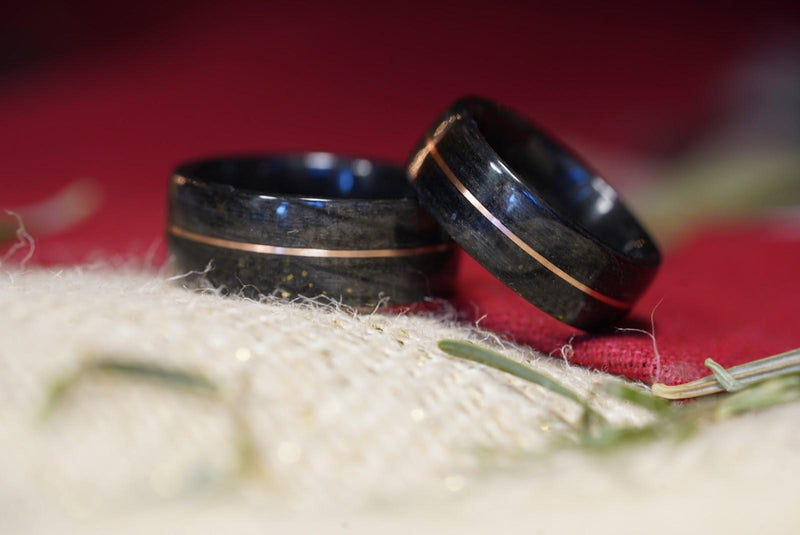Purchasing a Wedding Band: Part 2 - Do Wedding Bands Have to Match?
July 09 2020 – Mike Yarbrough

Wedding rings are time-honored, traditional objects symbolizing the love we share with our spouse. Some venerate these traditions, while others like to blaze their own trail and do something completely different. When it comes to the question of whether wedding rings should match, the attitude is much the same: it all depends on the couple.
A History of Matching Wedding Bands
It's always interesting to look at the history of wedding rings and see how attitudes have changed through the years. For example, in the United States, men seldom wore engagement rings or wedding rings until the 20th century, making the idea of matching rings a moot point until surprisingly recently.
Men's wedding bands started to become more common during World War II, when soldiers overseas began wearing them to feel closer to their wives back home. The idea of matching rings didn't really catch on until even more recently, although there are some interesting historical examples that predate modern wedding rings.
Gimmel rings, which were popular in 16th and 17th century England are one example. These rings were made of two interlocking rings, and the man and woman would each wear one throughout the engagement. At the wedding ceremony, the two halves would be locked together to form a single ring, which the wife would wear from then on.
Do Wedding Bands Have to Match?
Today, it's customary for the bride and groom to wear a matched set of wedding bands. Matching sets are perfect for couples who like to honor tradition, and who share similar tastes. The benefits of matching wedding bands include
- Showing off your similar taste, and making it clear to the world that you belong together.
- Making ring shopping easier (assuming you agree on a similar design or style).
- Demonstrating your unity and commitment to each other, and "becoming one" through matching rings.

Of course, not everyone has the same taste in rings. Luckily, your rings don't have to match! Rather than getting matching bands, you can get complimentary bands, or go in completely different directions altogether. Non-matching wedding rings
- allow you both to express your individuality and personal style.
- avoid a situation in which one partner feels like they have to compromise on a ring they may not love.
- make it easier for couples who want to surprise each other with rings.
Considerations When Choosing Your Wedding Bands
Whether or not you and your spouse choose matching wedding bands, it's key to understand the importance of selecting the right rings. The material, design, color and finish all come together to make your rings special. Your wedding bands should tell your story and reflect the depth of your love and commitment.
If you and your significant other can't agree on a matched set of rings, there are plenty of ways you can compromise. Rings that are the same color, but have a different design, for example, can still feel like they belong together. You can also choose rings with a similar base material, but different inlays, to represent your unity and individuality at the same time.
To learn more about creating unique wedding rings that speak to the deep love you and your spouse share, reach out to our live chat team today. Whether you choose matching, complimentary or individual rings, we're committed to making sure they represent your love story. Take our ring style quiz to find out which type of ring best represents you.


